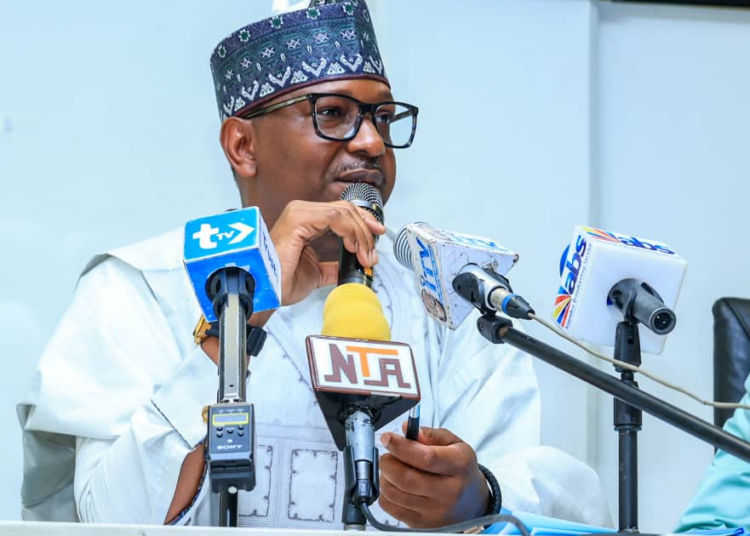President Bola Tinubu’s recent decision to replace the Ministry of Sports Development with the National Sports Commission (NSC) marks a pivotal shift in the nation’s approach to sports governance.
The move, executed just two weeks ago as part of a broader cabinet reshuffle, returns the Nigerian sports sector to a commission-led structure – a framework dismantled nine years ago under former President Muhammadu Buhari.
This resurrection of the NSC, much anticipated by sports officials, managers, athletes, and enthusiasts alike, has reignited hopes for a more effective and strategic system to guide the nation’s sports aspirations.
At the centre of this new beginning stands Shehu Dikko, former chairman of Nigeria’s League Management Company, who has now been appointed NSC chairman. Dikko is no stranger to the intricacies of Nigeria’s sports scene, yet his role as the leader of this reinstated commission comes with enormous responsibility and unprecedented challenges.
His task goes beyond mere restructuring; it is about reshaping sports as a central component of national unity, pride, and youth empowerment.
In our view, this mandate has never been more pressing. Nigeria’s recent performance at the Paris 2024 Olympics fell far short of expectations, underscoring the need for a systemic overhaul.
The nation’s disappointing Olympic showing wasn’t merely a reflection of insufficient training or strategy; it revealed deeper structural issues that cannot be ignored if Nigeria is to make meaningful progress on the global sports stage. A re-established sports commission, while a promising first step, will not suffice on its own. The NSC must embrace a fundamentally different approach if it is to fulfil its mandate.
One critical area requiring immediate attention is grassroots sports development. Time and again, experts have identified grassroots initiatives as the foundation of sustainable sports growth. Grassroots sports are where young talent is identified, nurtured, and prepared for higher levels of competition.
For decades, however, successive governments have paid little more than lip service to this cornerstone of sports development, allowing talent to languish without adequate support or investment. Repeated pledges to “return to grassroots sports” have been followed by years of inaction. For Dikko, changing this dynamic must be a priority.
Achieving this, however, requires more than a top-down directive from the NSC. It demands a collaborative effort with the Ministry of Education. Schools are a natural breeding ground for athletic talent, but many lack even the most basic facilities. Playground space has become a rarity, let alone dedicated sports fields or training facilities.
Schools that aspire to offer sports programming often face insurmountable hurdles due to budget limitations, inadequate infrastructure, and insufficient training for physical education staff.
A concerted effort to integrate sports into school curricula, backed by the NSC, would send a powerful message: that Nigeria is serious about cultivating young talent and that sports development is not an afterthought but a national priority.
Such an initiative would also require buy-in from local governments and private-sector partnerships. According to the World Economic Forum (WEF), grassroots sports yield profound benefits for society—benefits that are often overlooked due to a lack of visible short-term returns.
Historically, the NSC has been home to some of Nigeria’s most knowledgeable sports administrators, strategists, and planners. It possesses the expertise necessary for developing coherent policies, executing sports programmes, and managing national sports administration.
However, achieving these lofty goals requires stability and cohesion within Nigeria’s sports federations. Dikko’s success will partly depend on his ability to establish a framework of transparency and accountability across these federations.
In recent years, Nigerian sports federations have been plagued by conflicts, opaque governance, and inefficiencies. To overcome these issues, Dikko must foster an environment that emphasises fair play, sound governance, and measurable progress.
He must be willing to make difficult decisions that will restore credibility to Nigeria’s sports federations. And he must do so with a transparency that leaves no room for doubt among Nigeria’s sports community or the broader public.
Dikko’s performance will ultimately be judged by the achievements of Nigeria’s national teams. Nigerians take enormous pride in their athletes, and every victory on the international stage reinforces a sense of national unity.
When Nigerian sportsmen and sportswomen succeed, the entire country celebrates together, setting aside its divisions and differences. Dikko’s role, therefore, is not merely administrative; it is profoundly symbolic. By championing Nigerian athletes, he will be uniting Nigerians behind a shared dream.
But it is equally important that Dikko’s vision extends beyond immediate accolades. He must leverage sports as a tool for creating economic opportunities, empowering youth, and reorienting Nigeria’s younger generations toward constructive ambitions.
In a country where unemployment among young people remains high, sports can provide a pathway to meaningful employment and personal development. By investing in sports infrastructure, training, and support for young athletes, the NSC can help pave the way for a generation of Nigerians who see sports as a viable career path and a means of achieving personal and national success.





